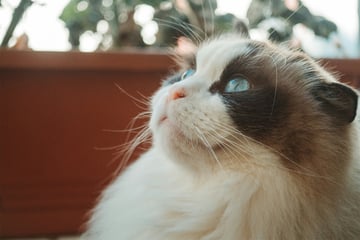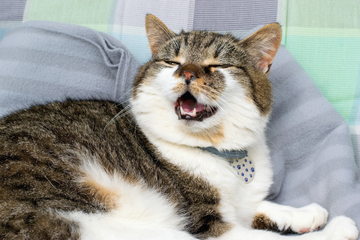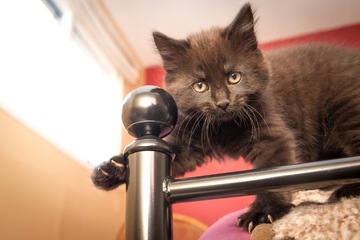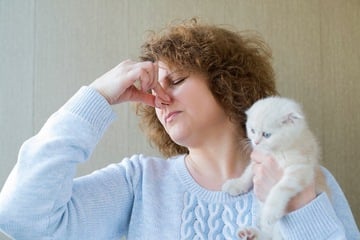Do cats get the hiccups?
Hiccuping cats deserve our love and attention, of course, but what's the actual deal here? Do cats genuinely get the hiccups, or does it just seem like they have the hiccups? And if so, what should you do about it?
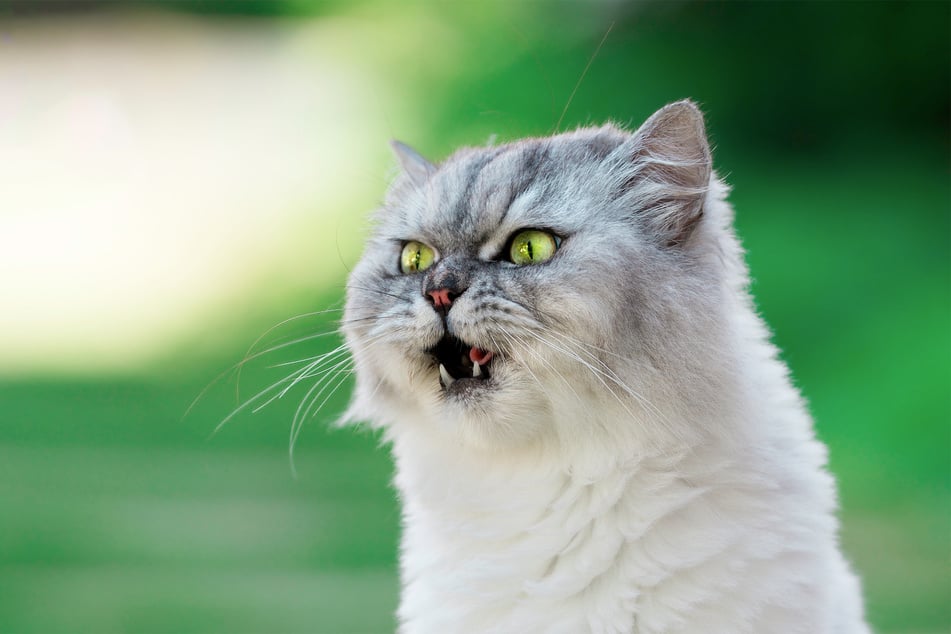
Few things are more adorable than a cat with sniffles or a dog who's begging for food. Yet, considering that a child with hiccups is equally adorable and irritating, surely a cat with hiccups would be a real sight to behold, right? Cat hiccups might be sweet and strange, but they can also be a bad sign.
So, do cats actually get the hiccups, or is it something completely different that just seems like the hiccups? And if cat hiccups are real, what can you do to help your feline friend through it?
Do cats also get the hiccups?
Yes, cats can get the hiccups as well, and it's both completely normal and completely safe for them. In almost all cases, the little yelps given during a fit of cat hiccups are completely innocuous and generally caused by some issue with the way a cat has eaten, as it is triggered by many of the same things in your cat as it would be in your average human.
What's great is that cat hiccups are as normal as cat sneezes or the wagging of its tail, but what isn't so great is that in some rare cases, the hiccups can be the sign of something not as fantastic. As a result, cat hiccups should be taken seriously, and kitties who are exhibiting the hiccups should be watched closely.
Try not to worry, though. Cat hiccups are a real thing and are much the same as human hiccups. The main difference, of course, is that they can sometimes freak your cat out as it won't understand what hiccups are as well as we humans do.
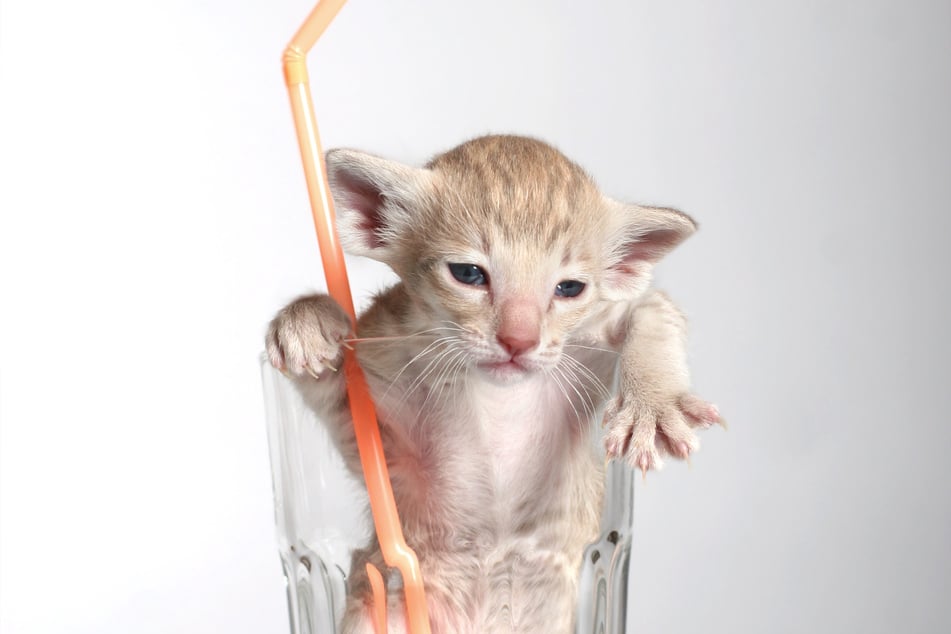
How to tell if your cat has hiccups
Cat hiccups are a little harder to identify than humans, both because it is generally easier to communicate with humans and because they manifest in slightly different ways. Considering that cat hiccups are more or less caused by the same thing in cats as they are in humans, though, many symptoms are similar or even identical cross-species.
Here's how to tell if your cat has the hiccups:
- Sudden "hic" from your cat's nose or mouth, similar to in a human
- Jerk of the head whenever a "hic" is sounded
- Clear spasm of the mouth or throat
- Twitching or convulsing stomach area
- Apart from the strange hiccups, no other symptoms should appear. If they do, something more serious could be wrong.
- Normal cat hiccups should never last more than 3–5 minutes at the very most
The fact of the matter is that cat hiccups are very similar to human hiccups. If you can recognize the hiccuping of a person, then you can recognize the hiccuping of a human.
Why do cats get the hiccups?
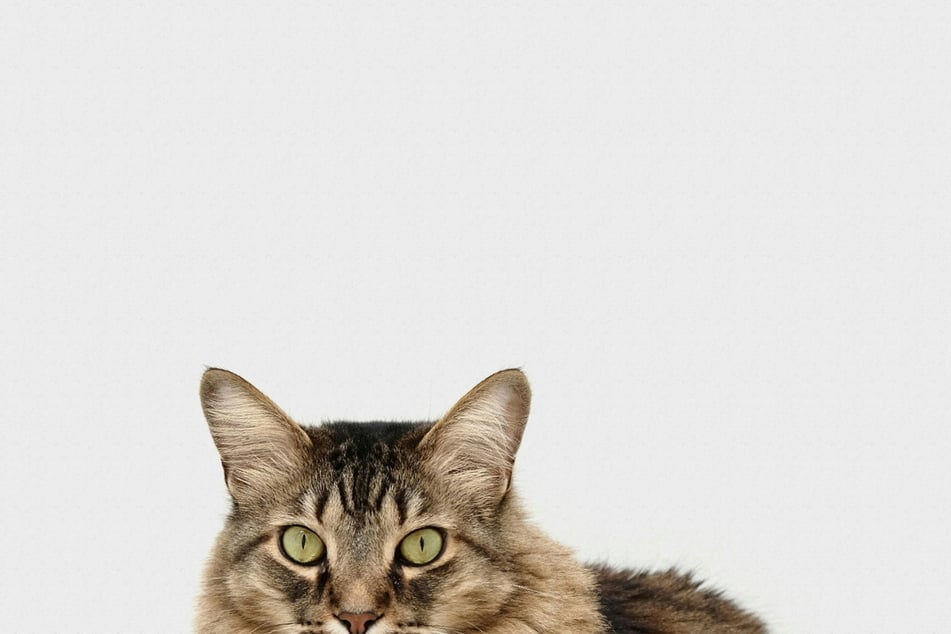
The hiccups in cats are the same as in humans, caused by the diaphragm contracting involuntarily. It is generally caused by a nerve that is experiencing a relatively minor and short-lived irritation. In a direct parallel with humankind, the leading cause of cat hiccuping is a tendency to overeat or swallow too fast.
In particular, cats often don't chew their food properly, causing an increased inhalation of air as they're eating, which then irritates nerves around the diaphragm. Another potential cause, which generally runs along the same line, is the humble – but disgusting – fur ball.
Here are the most common causes of the hiccups:
- Food being eaten too quickly
- Large mouthfuls of food that aren't properly chewed
- Quick drinking
- Fur balls lodged in the throat or on its way back up
- Asthma
- Tumors and cancer
- Parasites
- Allergies
- Other related health issues
If any health issues are causing your cat's hiccups, there's one thing to always remember – you are not a medical professional! Don't try to treat your kitty yourself, just ring the vet.
Cat hiccups because of heart disease
While occasional hiccups in cats are nothing to worry about, in rare cases, they can indicate serious illness, including heart disease. In such cases, you need to watch out for the telltale signs of heart disease, as hiccups will likely only be one of many symptoms your cat is experiencing and having trouble with.
Here are the common symptoms of heart disease in cats:
- Rapid and regular hiccups
- Loss of appetite and weight
- Extreme exhaustion and lethargy
- Difficulty breathing
- Sudden collapse
- Paralysis
- Problems with growth starting from a young age
Heart disease can be fatal in cats, so all owners should keep a close eye out for the symptoms. Seek medical attention immediately if you are concerned.
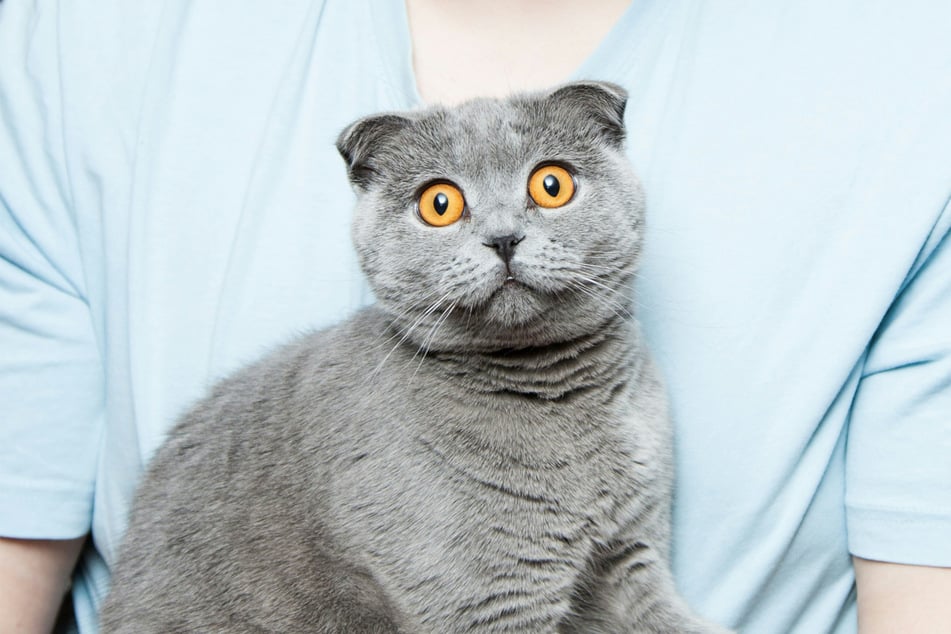
Cat hiccups after eating
Hiccups in cats are commonly triggered by overeating or especially rapid eating. This is very common and caused by more or less exactly the same thing that causes hiccups in babies and small children. It is nothing to worry about and something that requires absolutely no attention. Just keep in mind that cats can choke, though, and if it happens then it is considered a medical emergency.
What do I do when my cat has hiccups?
The safest and best way to deal with a cat that has hiccups is to monitor it and determine what is causing the behavior. If you can tell that it is food-related or utterly innocuous, then you can go back to relaxing, but if not, you need to get medical advice and attention as soon as you possibly can.
Try to keep your cat calm, though, when it's eating. Seeing as this is the most common cause of cat hiccups, try to focus on prevention instead of treatment and strictly control the portion size and distribution of your feline friend's food. It might seem like a hassle but, trust is, it's worth taking on the trouble.
When it comes to animal-health-related matters, it is best not to offer too much advice except to say that if you are worried, go to the vet.
How to get rid of cat hiccups: Home remedies
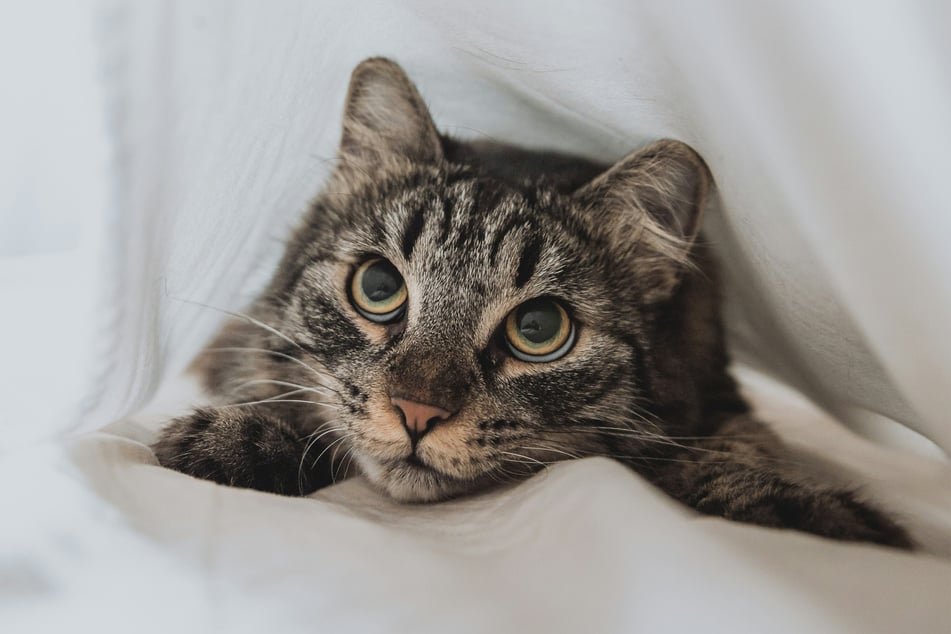
Many people swear by their various hiccup cures, but very few can actually pull through with something that works. The same goes for cats, to be honest, as it is very unclear what works and what's either bad or simply useless. Of course, there are drugs and medicines that can sometimes help, but they should be kept to a minimum where possible.
Here are some general home cures for cat hiccups:
- Get relevant prescription medicine and apply it however recommended by your vet.
- Feed your cat smaller, more spaced-out portions of food.
- Keep your cat calm, and if it gets the hiccups, give it time alone and uninterrupted.
- Manage fur balls as instructed by your vet.
- If caused by fur balls, get one of the many cat-intended laxatives for your kitty.
- Distract your cat with a toy or something similar.
There isn't much you can do about cat hiccups when they happen, so it is mostly about reducing their regularity and making sure your kitty is comfortable when they happen.
Cat hiccups can be rough, and should be treated carefully
While cat hiccups are usually completely innocuous and not something to worry yourself over, they can sometimes be a signal of something more serious. As a result, if your cat starts hiccuping regularly, you really should make sure to take it to the vet and the next opportunity available to you.
It will likely come up that nothing is wrong, but it is always better to be safe than sorry, and that little bit of money you spend at the veterinarian could be the difference between life and death for your beloved feline friend.
Cover photo: IMAGO/Pond5 Images
